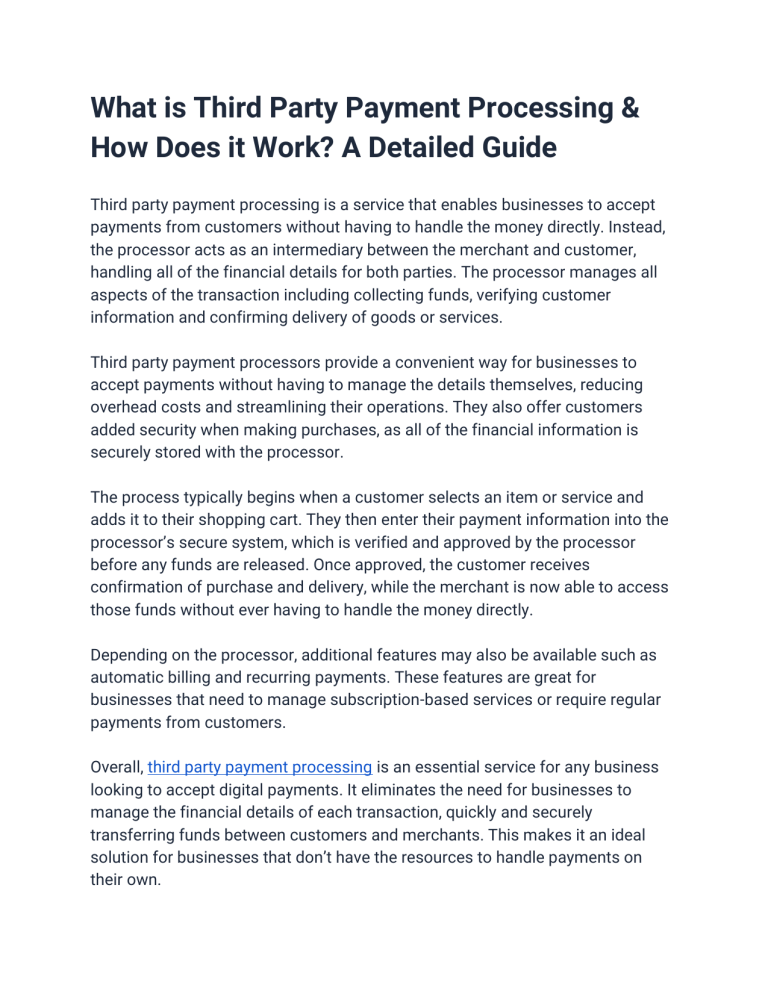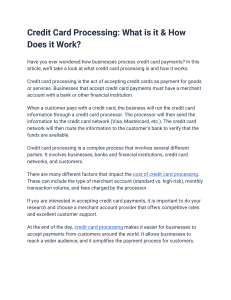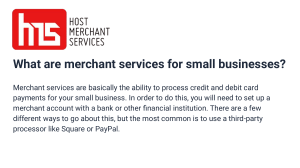What is Third Party Payment Processing & How Does it Work?
advertisement

What is Third Party Payment Processing & How Does it Work? A Detailed Guide Third party payment processing is a service that enables businesses to accept payments from customers without having to handle the money directly. Instead, the processor acts as an intermediary between the merchant and customer, handling all of the financial details for both parties. The processor manages all aspects of the transaction including collecting funds, verifying customer information and confirming delivery of goods or services. Third party payment processors provide a convenient way for businesses to accept payments without having to manage the details themselves, reducing overhead costs and streamlining their operations. They also offer customers added security when making purchases, as all of the financial information is securely stored with the processor. The process typically begins when a customer selects an item or service and adds it to their shopping cart. They then enter their payment information into the processor’s secure system, which is verified and approved by the processor before any funds are released. Once approved, the customer receives confirmation of purchase and delivery, while the merchant is now able to access those funds without ever having to handle the money directly. Depending on the processor, additional features may also be available such as automatic billing and recurring payments. These features are great for businesses that need to manage subscription-based services or require regular payments from customers. Overall, third party payment processing is an essential service for any business looking to accept digital payments. It eliminates the need for businesses to manage the financial details of each transaction, quickly and securely transferring funds between customers and merchants. This makes it an ideal solution for businesses that don’t have the resources to handle payments on their own. It’s important to note, however, that not all third party payment processors are created equal. When choosing a processor for your business, make sure you compare different services and fees to ensure that you’re getting the best deal. You should also check for any additional features that may be beneficial to your business. Finally, make sure the processor is compliant with all applicable regulations so that your customers can have peace of mind knowing their information is secure. With the right third party payment processor, you can easily and safely accept payments from customers around the world.



